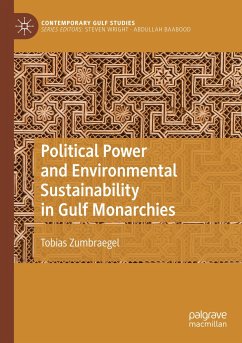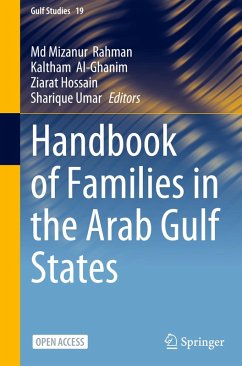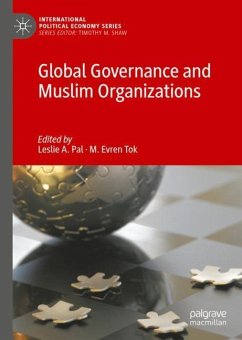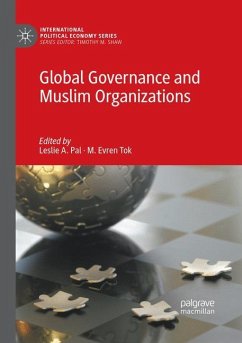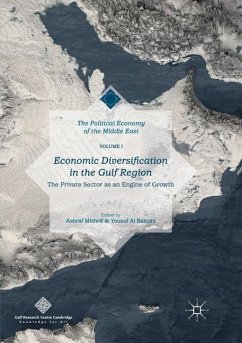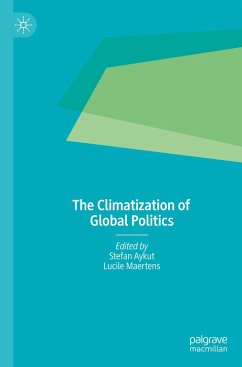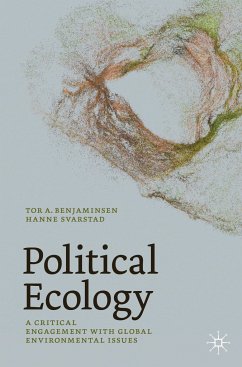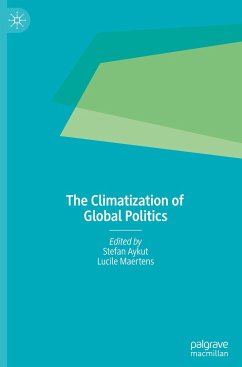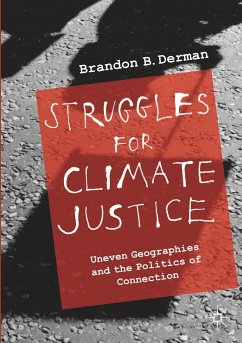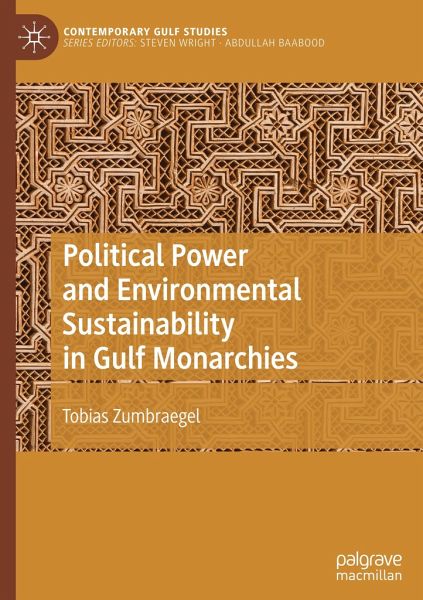
Political Power and Environmental Sustainability in Gulf Monarchies
Versandkostenfrei!
Versandfertig in 6-10 Tagen
83,99 €
inkl. MwSt.
Weitere Ausgaben:

PAYBACK Punkte
42 °P sammeln!
This book offers a new perspective about the Gulf Arab states entering a post-oil era by looking at the political factors behind the green transformation. It discusses the recent 'environmental enthusiasm' in the oil- and gas-rich Gulf monarchies by asking how political power can be constituted through advocating environmental sustainability. While hydrocarbon-wealthy Gulf monarchies have been viewed as the globe's 'hydrocarbon powerhouse' with an immense ecological footprint, efforts towards sustainability and environmental protection measures are increasingly monitored.Climate Change, enviro...
This book offers a new perspective about the Gulf Arab states entering a post-oil era by looking at the political factors behind the green transformation. It discusses the recent 'environmental enthusiasm' in the oil- and gas-rich Gulf monarchies by asking how political power can be constituted through advocating environmental sustainability. While hydrocarbon-wealthy Gulf monarchies have been viewed as the globe's 'hydrocarbon powerhouse' with an immense ecological footprint, efforts towards sustainability and environmental protection measures are increasingly monitored.
Climate Change, environmental, degradation and the global pressure towards a low-carbon development are threatening the very basis of economic and political power of the oil- and gas-exporting Gulf monarchies. So far, discussions about this fundamental transformation have barely elaborated how it affects and reorganizes political power games in the region. This book attempts to overcome thedominant focus of techno economic drivers of change and uncovers how environmental sustainability impacts state-society and state-elite relationships as well as shaping regional and even global geopolitics.
Climate Change, environmental, degradation and the global pressure towards a low-carbon development are threatening the very basis of economic and political power of the oil- and gas-exporting Gulf monarchies. So far, discussions about this fundamental transformation have barely elaborated how it affects and reorganizes political power games in the region. This book attempts to overcome thedominant focus of techno economic drivers of change and uncovers how environmental sustainability impacts state-society and state-elite relationships as well as shaping regional and even global geopolitics.



